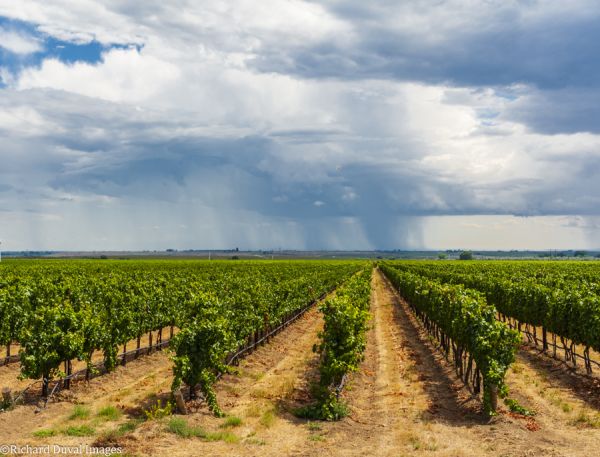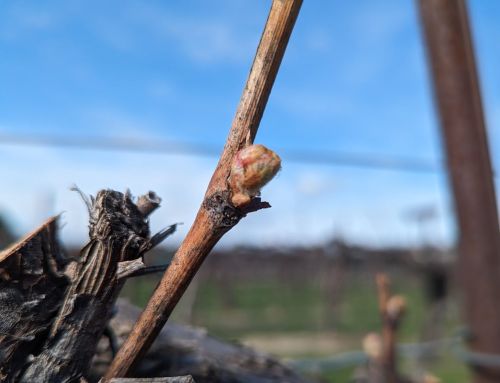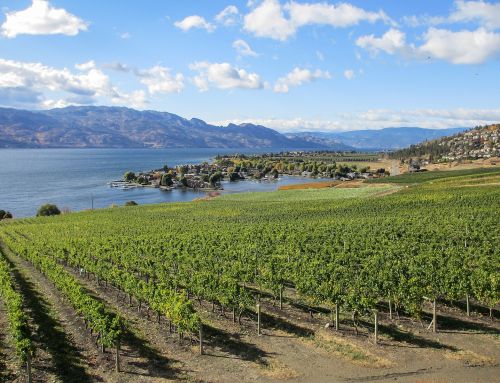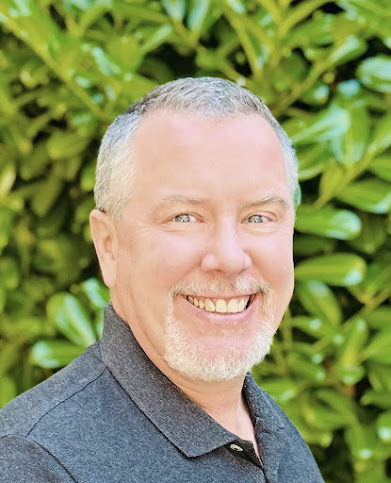
Conner Lee Vineyard, copyright Richard Duval
Simonit & Sirch, an international vine pruning and training consulting company, is now working with Washington’s Conner Lee Vineyard. This is the company’s first foray into Washington and began with the 2023 growing season.
“They believed in our vision and shared our vision,” says Jacopo Miolo, general manager of Simonit & Sirch USA.
Conner Lee Vineyard is located in the Columbia Valley near Othello. The vineyard was established in 1980 and purchased by Lawrence Vineyards and Tom Merkle in 2019.
“I invited Jacopo to come to Washington, and I asked him if they would consider working with us,” says Matías Kúsulas, head viticulturalist at Lawrence Vineyards. Thus far, Kúsulas is thrilled with the results.
“What they do, to me, it’s just mind blowing. It’s a game changer.”
Marco Simonit and Pierpaolo Sirch launched their vine pruning and training consultancy service in 2003. The concept is to improve vine quality and extend vineyard life by altering the physical structure of vines via pruning techniques.
“We are used to pruning, adapting the vine to the trellis system, lowering the cordons, and things like that,” Kúsulas says. “This is completely opposite. It works with sap flow and with vigor.”
Miolo says the system of pruning commonly used throughout the world decreases plant vigor and energy over time. This results in uneven development and, in the long-term, decreased production. It ultimately shortens vineyard lifespan.
“We can have 30 or 40 year old vines, but, at the end, they are producing a ton per acre or a ton and a half per acre because the structure inside the trunk is completely compromised by the pruning,” Miolo says.
Pruning typically focuses on the geometry of the vine. The pruning strategy at Simonit & Sirch focuses on the physiology of the plant to best enable sap flow. In doing so, the vine is able to be more efficient, produce higher quality fruit, and be productive longer. There are numerous benefits, including financial ones.
“If I’m able to preserve my vineyards for a really long time, I’m able to save money in the long term because my initial investment will be spread out more years,” Miolo says.
Kúsulas was interested in bringing Simonit & Sirch to Conner Lee as the oldest vines are now 40+ years old. While the intent is to improve the health of the vineyard long-term, Kúsulas saw immediate improvements in 2023.
“With this new technique, we saw the difference in vigor. The vineyard is looking better than ever”
These improvements, of course, come at a cost. This includes both the expense of having Simonit & Sirch consult and also changes in pruning speed.
“The people, instead of maybe pruning 1,200 vines per day, they are pruning half as much if we’re lucky,” Kúsulas says. “But they are doing a very methodical job, and it works.”
The goal of Simonit & Sirch is to train a team at Lawrence Vineyards so the techniques become part of the vineyard worker culture. Starting with the 2025 growing season, Simonit & Sirch will also work with Stoneridge Vineyard, which is managed by Lawrence Vineyards.
Conner Lee Vineyard provides fruit to approximately 25 wineries. Located between 1,085-1,164 feet above sea level, the 145-acre vineyard is planted to 11 varieties.
Conner Lee was initially planted by Dick and Louise Owings under the guidance of Walter Clore, recognized as the “father of Washington wine.” The vineyard gets its name from Bill Conner and Rhoady Lee, who, along with Jack Sullivan, were brought on as partners in the property.
Simonit & Sirch has worked with over 150 wineries in 15 countries. This includes a ‘who’s who’ list of producers, such as Château Latour, Château d’Yquem, Domaine de la Romanée-Conti, Domaine Leflaive, Shafer Vineyards, Quintessa, Allegrini, Ferrari, and Bellavista.
Northwest Wine Report is wholly subscriber funded. Please subscribe to support continued independent content and reviews on this site. It is the only way that the site will be able to continue.
To receive articles via email, click here.







Leave A Comment